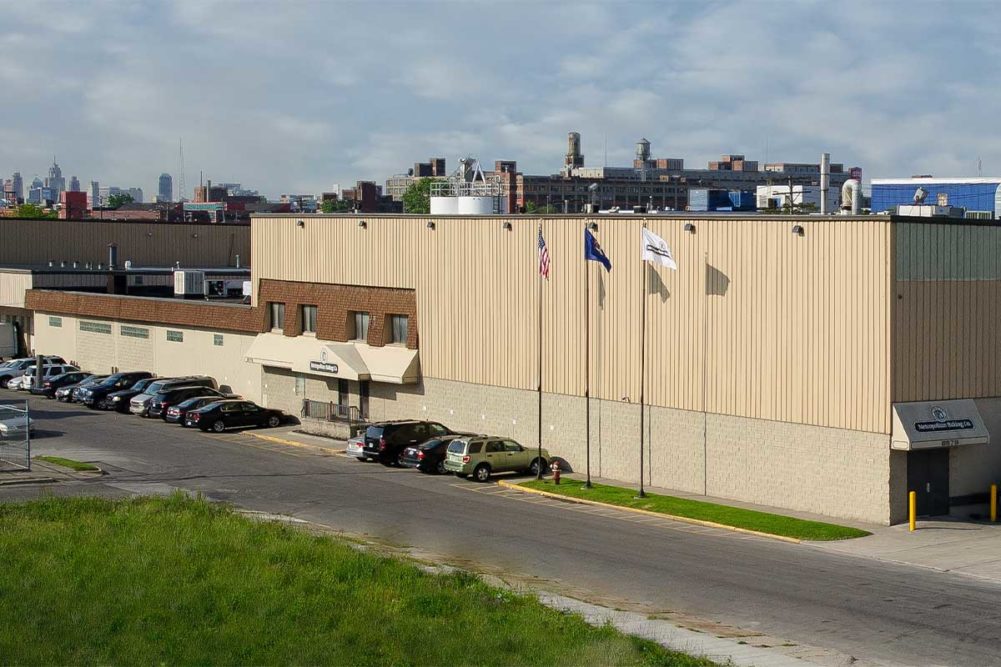Maybe the sixth time will be the charm for George Kordas, president of Metropolitan Baking Co., Hamtramck, Mich. That’s the number of times the bakery has expanded since the company was founded by his grandfather in 1945.
“We knocked down about 40 or 50 homes over the course of maybe 20 years in order to finally have roughly 20 acres, which should hopefully be enough to expand on this property in my lifetime,” Kordas recalled. “Over the course of time, my grandfather, and then my father, would basically buy a home or two or three and expand the bakery. It wasn’t exactly the best economies of scale, but we were a much smaller business also. My father and my grandfather had to say, ‘This feels comfortable without overextending the bakery.’ ”
Over the next nine months, the company is adding 35,000 square feet to its 100,000-square-foot bakery in an expansion that will house its existing bread line and a new bun and roll line with a conveyorized proofer and oven that should boost capacity by 30% to 35%.
Metropolitan Baking is also adding much-needed warehouse space for its burgeoning frozen business that accompanies its direct-store-delivery operation. The bakery is experiencing faster growth supplying national foodservice, institutional, retail, schools and convenience store chains with a wide variety of bread, buns and rolls.
Kordas said creating efficiencies and automating the operation are integral parts of the expansion. The bakery started by replacing an older Baker Perkins 970 tray oven that was on its last leg. However, one purchase led to another as the company eliminated bottlenecks. Eventually, he took the plunge for a whole new production line from Middleby Bakery.
“That oven is still a tank, and it’s sad to see it go. But in the grand scheme of things, we looked at what it was going to cost to refurbish it completely, update the controls and change the unloader system just to bring it to present-day standards,” he explained. “We realized really quickly that buying a brand-new oven was going to cost only 50% more, so it was a no-brainer.”
He described the bakery as an eclectic mix of new and old equipment with a bank of six horizontal mixers from the 1970s cranking out 1,600-lb doughs feeding three new Reiser Vemags that date back four years.
“Now we’re putting in a brand-new oven, so we said, ‘Maybe we should look at the proof box behind it because it’s all about the throughput,’ ” he noted. “And then we looked at all of the other equipment and decided to put in a whole new line.”
The new line will also improve quality and reduce ongoing inefficiencies such as a breakdown of equipment or even 5- or 10-second stoppages caused by pan jams and other issues, multiple times a day. Kordas also wants to maximize the use of his labor force, shifting job duties to make it a more comfortable and productive place to work.
“We’re kind of in a ‘Band-Aid-on-a bullet-wound’ situation,” he said. “We started asking ourselves questions like, ‘How are the best companies in the country operating? How can we get to that level? Can this plant really hum? How do we eliminate stoppages and streamline the operation to run faster?’ ”
With that extra 30% to 35% capacity, the bakery will be able to operate 22 hours a day, six days a week, at a higher rate and with less downtime.
“We’re running about 20 hours a day here six days a week at the moment with maintenance and sanitation afterward,” he observed.
The company has a strong maintenance team but also relies on third-party contractors and maintenance firms that come in each night to help fulfill work orders.
“Our plant was just too small,” Kordas said. “This newer equipment should break down far less instead of running it until the wheels have fallen off.”
For Metropolitan Baking, Kordas explained the latest investment should create about 25 additional jobs for the community while alleviating the current workload and shifting employees to more productive positions within the operation.
“We've had opportunities to buy other facilities in the region, but one of the reasons I'm expanding on our property is because we have this all-star team of employees, and we take care of them,” he explained. “We're in Michigan and a union shop so we're paying fair wages and making sure that our employees are compensated properly.”
He added that he didn’t consider opening a second facility because it could complicate an operation and actually lower total efficiencies for the company. Expanding the existing bakery is the best option for him.
“I just don't necessarily trust what I've seen with bakeries that operate multiple other plants,” Kordas said. “Maybe that second facility isn't being managed properly, or they don't have the key players in both facilities. We’re at a stage where we can pump out a lot more product here, but we can do it comfortably on our own terms with the team we have in place.”
The best investments, he said, are ones that benefit loyal workers.
This article is an excerpt from the December 2023 issue of Baking & Snack. To read the entire feature on Operational Efficiency, click here.




